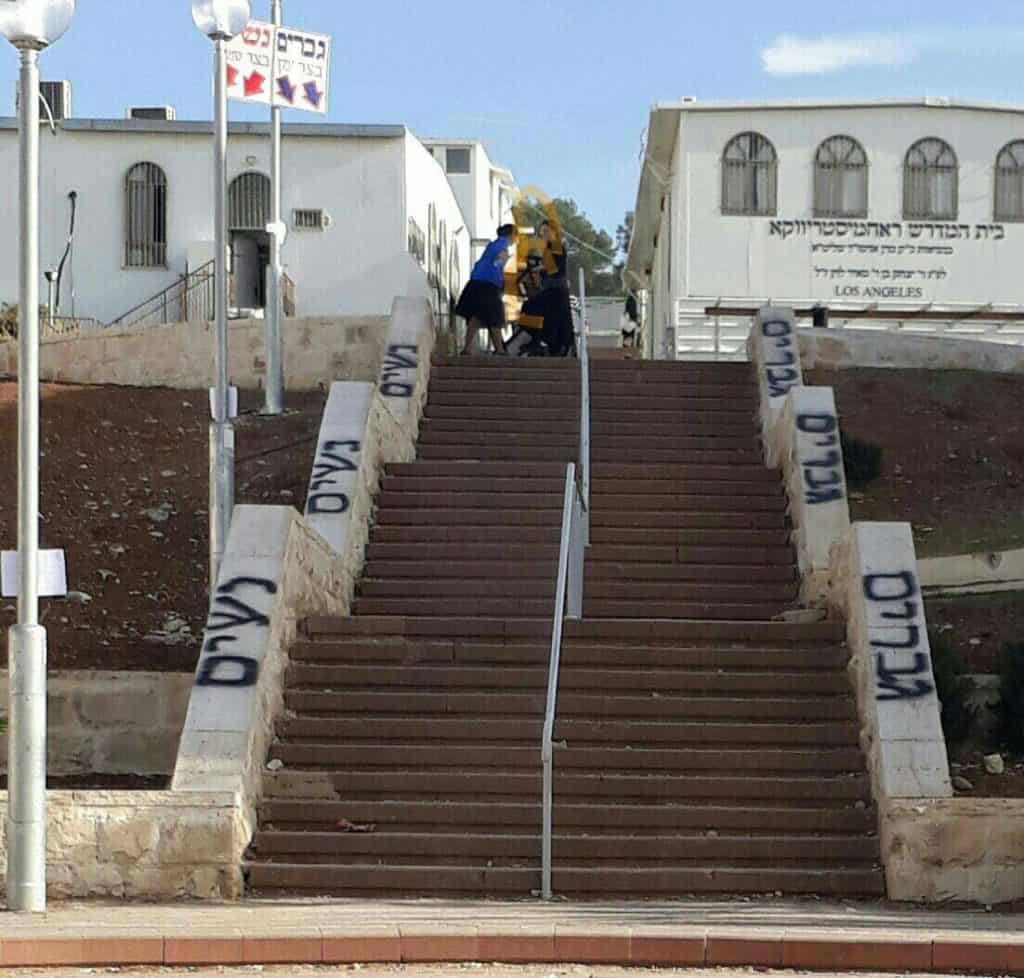In the city of Bet Shemesh, a struggle is playing out between two ways of life, the repercussions of which will affect the future of Israel.
If you’ve heard of Bet Shemesh, chances are it’s because of the “crazy fanatics” who live here, because someone you know moved here, or both.
Nestled in the beautiful Judean hills, Bet Shemesh started in the 1950s as a development town for Romanians and Moroccans. Russians, Ethiopians, Anglos, and Strictly Orthodox (Charedim) soon joined them.
Within the past 15 years, Charedim from the most radical sects of Judaism, those who don’t believe in the state, the army, or respect any form of Judaism other than the one they practise, have come to live in the city. They settled at the edge of the existing Charedi neighbourhood, across the way from an established neighbourhood of religious Zionists — a large portion of whom hail from Western, English-speaking countries.
Tensions began when Charedi residents wrote letters to their neighbours across the street, telling them to move their televisions and cover their windows so they didn’t have to see unholy things. Teenagers were harassed for being in the streets, women and girls were called “shiksas” or “whores”, and most famously, an entire girls’ school was subject to near daily harassment from men yelling, spitting and vandalising the school in an attempt to get them to move. This battle for turf ended only when the media was brought in, as too few local residents were willing to get involved to force the bullies to stand down. Similarly, there have been local riots against the IDF, police are called Nazis and Charedi soldiers have been attacked.
At this point, you may be wondering why on earth we still reside here. Rest assured, on an average day these things are not seen and this city is a very pleasant place to live. In fact, concentrated in Bet Shemesh is a community made of the most incredible and sincere people working hard to make this city, and country, better for everyone.
It is no wonder that the battle for the future of the Jewish state is being fought here, where the most zealous and least law-abiding men have come up against the most ideologically motivated, educated, and religious, Zionistic women.
At the centre of this battle are the “modesty signs”, symbolic of the small minority imposing its will upon a large part of the city. In addition to local circulars, billboards, and even health-clinic brochures being devoid of images of women, these large posters hang in various parts of town and tell women how to dress and where they can and cannot walk.
Five local women, all of whom were verbally or physically assaulted by local extremists, asked the city to remove the signs, which denote a sense of turf. Mediation failed and a lawsuit was filed. The women won but, although taken down, the signs were soon up again. Since then, more have been added. This month, in a dramatic and historic hearing, the Supreme Court ordered the city to remove the signs.
Judge Hannan Meltzer, appalled at the idea of forbidding women in any public place said, “There is no such thing as a street closed to women in the state of Israel. There never has been and there never will be.”
Judge Uri Shoham proclaimed: “Telling women how to dress and where to go in a public space is against the basic law of a person’s right to honour and freedom.”
The judges ordered the signs be taken down and stated that the police are to accompany any woman who wants to walk where the signs were located. These definitive statements and accompanying forceful directions are a huge win for the women of Bet Shemesh — and of Israel.
It is true that each time the signs are taken down, they are replaced with new ones (or graffiti), it is also true that the bullies who seek to control the city are feeling the pressure. In a show of desperation, they publicly identify and insult the women who brought the lawsuit even by making calls to their children and threatening death-rituals and violence.
But the women remain positive and encouraged. The struggle of Bet Shemesh is a struggle between thuggery and the rule of law. Every woman involved in this suit is proud and grateful for the opportunity to be part of something historic that will bring more freedom to the women of Israel.


